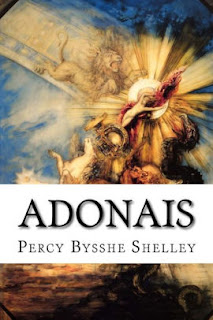It
is without a doubt that “Biographia Literaria” of S.T. Coleridge is one of the
finest books on literary criticism in English literature. Coleridge’s personal
life was very tragic, but he had great knowledge of literature and there are
few critics equally talented in the history of English literature. There is a
history behind the creation of “Biographia Literaria” which we should know if
we are to discuss it. In fact, “Biographia Literaria” was written in answer to
the famous essay “Preface to the Lyrical Ballads”. In 1798, Wordsworth and
Coleridge jointly published Lyrical Ballads. This book started the Romantic era
in the history of English literature. At that time, two friends shared
different opinions on different matters of poetry.
In
his essay, Wordsworth said some important things about poetry. His first major
statement was that there was not much difference between poetry and prose. We
might think that they are same. Wordsworth emphasized that there is not much
difference between the language of prose and the language of poetry and they
are quite close. Coleridge did not agree with this statement and he clearly
mentioned it in his essay “Biographia Literaria”. Hence, it is important when
we will discuss about Coleridge’s view on nature and function of poetry.
Before
Romantic era, there was neo-classical era in English literature. Poets, writers
and critics of this era considered works of the Greek and Roman poets as
standard and followed their rules. Many famous Greek and Roman poets and
philosophers including Aristotle believed that the main function of poetry is
to depict the truth but Coleridge did not support this view. He believed that
the main function of poetry is to entertain the reader. A reader should find pleasure or joy upon
reading poetry. This matter is very important and while discussing about the
function of poetry of Coleridge, we should keep it in mind as well about
Neo-classical idea.
Coleridge
said that poetry and prose are entirely different subjects. At first, the two
may appear close for both of them actually work with words. We use words while
writing prose and poetry. However, the sequence of words in poetry is different
from that of prose. According to Coleridge, the function of poetry is different
from that of prose. The main function of prose is to present the truth but that
is not the same with poetry.
Coleridge
believed that the main function of poetry is to provide pleasure to its reader
not to present the truth. Poetry may represent the truth but that is not very
important. Coleridge serious discussed on this issue in his essay “Biographia
Literaria”. Coleridge said that if we look into scientific prose then we would
see that they only present what happened but imagination has a major role in
poetry. The main difference between poetry and prose lies in the use of imagination
in these two forms. Except novel, there is not much use of imagination in
prose. During the time of Coleridge, novel became very popular but many
considered poetry equally important.
Coleridge
emphasized on the presence of beauty and joy in poetry. Through he tried to say
that poetry is an entirely different matter. Wordsworth’s definition of poetry
is different from that of Coleridge. There difference in opinion surprises us
for they were the pioneers of the Romantic Movement in England.













